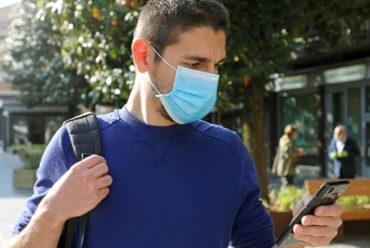Editor’s Note: This article comes courtesy of the Georgia Recorder
By Ross Williams
In May, the state Public Health commissioner, Dr. Kathleen Toomey, announced plans to quadruple the number of contact tracers across the state, up to 1,000 by late June, to help stem COVID-19 infections.
Nurse Connie DeKeyzer was watching and decided to put in her application. Now, she is one of 1,225 contact tracers across the state keeping an eye on people who may have been exposed to COVID-19.
“When I saw Dr. Toomey talking about how important this contact tracing was going to be, and that they were looking to hire people, I thought, ‘Well, I could do that, I’m at home already. I’m a nurse and I would know what I was talking about,’ ” she said. “I thought this is something I can do from my home. I can serve my community and my state.”
DeKeyzer had plans to launch her own business caring for Alzheimer’s patients, but those plans were sunk by the pandemic, so she was happy to sign on with the Georgia Department of Public Health’s district that covers the western central part of the state. Each of the state’s 18 health districts oversees contact tracing for its region.
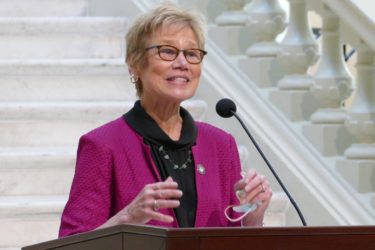
When Georgia residents test positive for COVID-19, they will get a call from their local health district asking them to list anyone they were in close contact with, beginning two days before they started showing symptoms. People like DeKeyzer will then call to let those contacts know they may be at risk, advise them on sheltering in place and check on them daily by phone or text for two weeks.
Since Toomey’s announcement in mid-May, contact tracers in Georgia have interviewed 30,821 patients and identified 71,997 contacts, for an average of about 2.3 contacts per case, according to the Georgia Department of Public Health.
Those numbers are too low, said a Georgia State University public health professor, Dr. Harry J. Heiman.
“By my calculations, there have been about just under 64,000 new cases since May, so we’re talking about less than half of them being contacted, let alone contact tracing,” he said.
Three times a day, DeKeyzer’s screen updates with new phone numbers to call. She clocks in a little before 9 a.m. and keeps her phone by her side to answer calls until at least 7:30 p.m. There can be a lot of calls per day, but every number that pops up on her screen is called within 24 hours, DeKeyzer said.
But that haste could be wasted, depending on how long it takes for the test results to get to the health department, Heiman said.
“If I have symptoms or have a contact and get tested five days later and get my results back five days later, we’re now 10 days out,” he said. “Then, it’s almost meaningless to do contact tracing, because I’ve been out and about probably so much, so many different places, and those people have been out and about, and that puts you behind the curve.”
“The critical question for me is do we have a testing infrastructure in place so that everyone can have access to testing, which means not only drive-in, but also walk-in, within 24 hours? And the answer to that is no,” he said.
Infections and hospitalizations are spiking now in Georgia, which public health experts say will make contact tracing increasingly difficult. Atlanta Mayor Keisha Lance Bottoms said this week that she had tested positive for COVID-19, as had her husband and one of her children. Their confirmed cases are among more than 100,000 in Georgia as of this week.
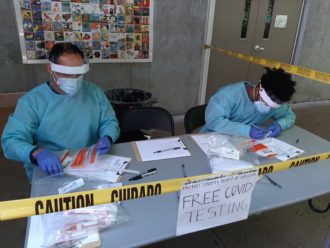
Health officials anticipated that as Georgia lifted April’s stay-home orders and business restrictions, more people would test positive and contact tracers would play a key role in isolating anyone who interacted with them.
Dr. Isaac Chun-Hai Fung, associate professor of epidemiology at the Jiann-Ping Hsu College of Public Health at Georgia Southern University, said the health department data suggest the effort seems to be going well, but that could quickly change.
Fung said the numbers from the health department are encouraging, but if the number of infected Georgians keeps rising, it could become too much for the contact tracers to handle.
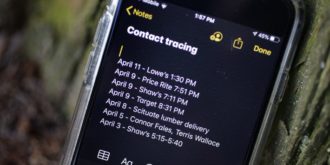
“If we are continuing this surge of cases per day, they will soon be overwhelmed,” Fung said. “Hiring new contact tracers or even volunteers and training them will not catch up fast enough, so it’s important that we take other measures that can potentially reduce the transmission.”
While Fung said he welcomes the University System of Georgia’s decision this week to mandate masks on college campuses, he is still concerned universities could become COVID-19 hotbeds if students don’t follow the rules.
“It could potentially be a superspreading event,” he said. “Because if one person is infectious, if he or she was in a classroom of 50 or 60 or even 100 students, potentially you will have to contact 100 people who were potentially exposed, and they will have to self-quarantine. The contact tracers with the Department of Public Health could be overwhelmed.”
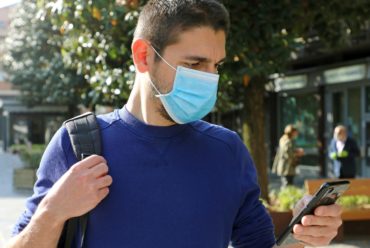
Many of the state’s contact tracers are themselves interns from Georgia colleges and universities working toward degrees in public health. Others, like DeKeyzer, have previous experience working in public health, health care or social services.
But a health care background is not required, and people skills are often more important than medical knowledge, said Denise Hammontree, lead contact tracer for the Georgia Department of Public Health’s South Health District. Each contact tracer receives customer service training, she said.
The Public Health Department’s case investigators tell people to alert their contacts that someone will be phoning them, but some people are surprised and upset when they get a tracer’s call, Hammontree said.
“People respond differently,” she said. “Some people are very angry. And for those who didn’t know ahead of time, maybe the person who tested positive didn’t tell them, we just try to listen to what their concerns are, tell them that we understand why they are angry and that we want to hear their concerns.”
Gurleen Roberts, who is a contact tracing lead epidemiologist with Cobb and Douglas Public Health, said most people on her list want to help, but about one in five are skeptical, angry or scared. Some ignore the Public Health Department’s attempts to contact them after multiple calls and letters sent to the address on file.
“If they are worried about their privacy, we can fax our HIPAA exemption paperwork to prove that we are not sharing personal information,” she said. “The anger sometimes arises because they are confused about why we are calling them, how we got their information, or why it took us so long to call them. This is because there is a delay in the lab being reported to us, which we need before we can call the case or contacts.”

Hammontree’s contact tracers can get through about five calls an hour if they get a few easy questions, but fraught conversations can take more time. There is little downtime for contact tracers, Hammontree said — the 16 people she oversees have other COVID-19 responsibilities, including entering data and taking calls from people looking to schedule an appointment.
But despite the workload and the people who are sometimes not happy to get the call, the tracers can feel proud when they clock out of work, she said.
“We know that we’re having an impact and preventing the spread of disease, and we’re also having an impact on the health of the communities that we serve, even for those people who are resistant,” she said. “When you do have that occasional person who may just hang up on you or not believe that you are who you are, we still believe that, at some point, they’ll remember that phone call and say, ‘I probably need to take this seriously.’ ”
Ross Williams is a staff writer for the Georgia Recorder. Williams previously covered local and state government for the Marietta Daily Journal.

